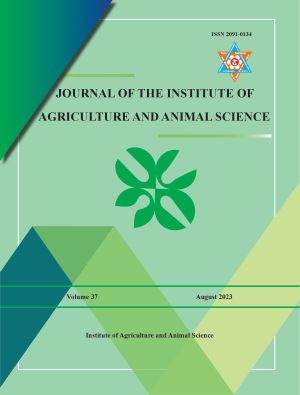Socio-Economic Determinants of the Willingness to Pursue Agriculture among Labor Migrant’s Families of Parbat, Nepal
DOI:
https://doi.org/10.3126/jiaas.v37i1.56983Keywords:
willingness, logit, youth, agriculture, factorsAbstract
Involvement of youth entrepreneurs into agriculture is the only measure suggested to cope with the loss of production and productivity that follows the adverse effects of labor migration. Various factors that affect entrepreneurship and youth's willingness to participate in agricultural activities have direct influence on youth involvement in agriculture, however inadequately studied in Nepal. So, a cross section study using convergent parallel mixed method design was conducted in Bihadi rural municipality of Parbat district Nepal to determine whether or not labor migrant’s families are willing to pursue agriculture as a means of income livelihood. Simple random sampling among 231 households of Parbat showed population that is willing to pursue agriculture (50.65%) was not significantly different than that from unwilling population. The major socio- economic factors influencing the willingness positively were age, social organization membership, land holding and negatively were prevalence of child in family and expected amount of income required per month to live in village by the labor migrant’s family. Consideration of these factors is helpful for successful preparation of local level agriculture plan of Parbat.
Downloads
Downloads
Published
How to Cite
Issue
Section
License
Copyright (c) 2023 Tribhuvan University Institute of Agriculture and Animal Science

This work is licensed under a Creative Commons Attribution-NonCommercial 4.0 International License.

